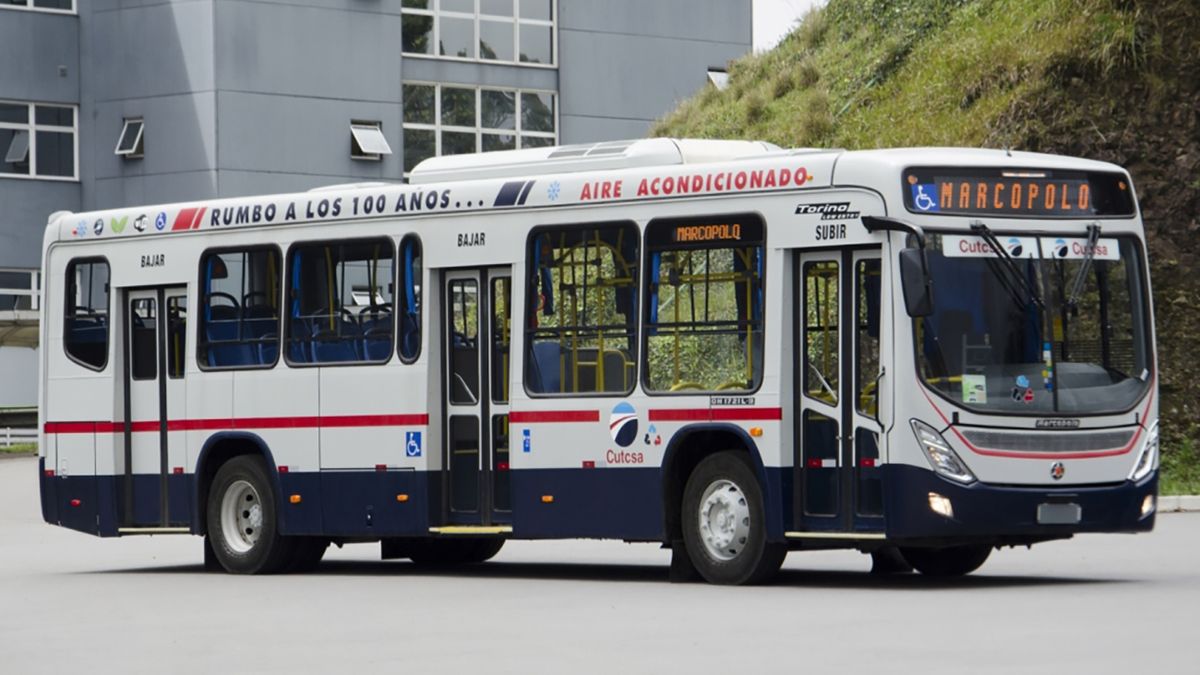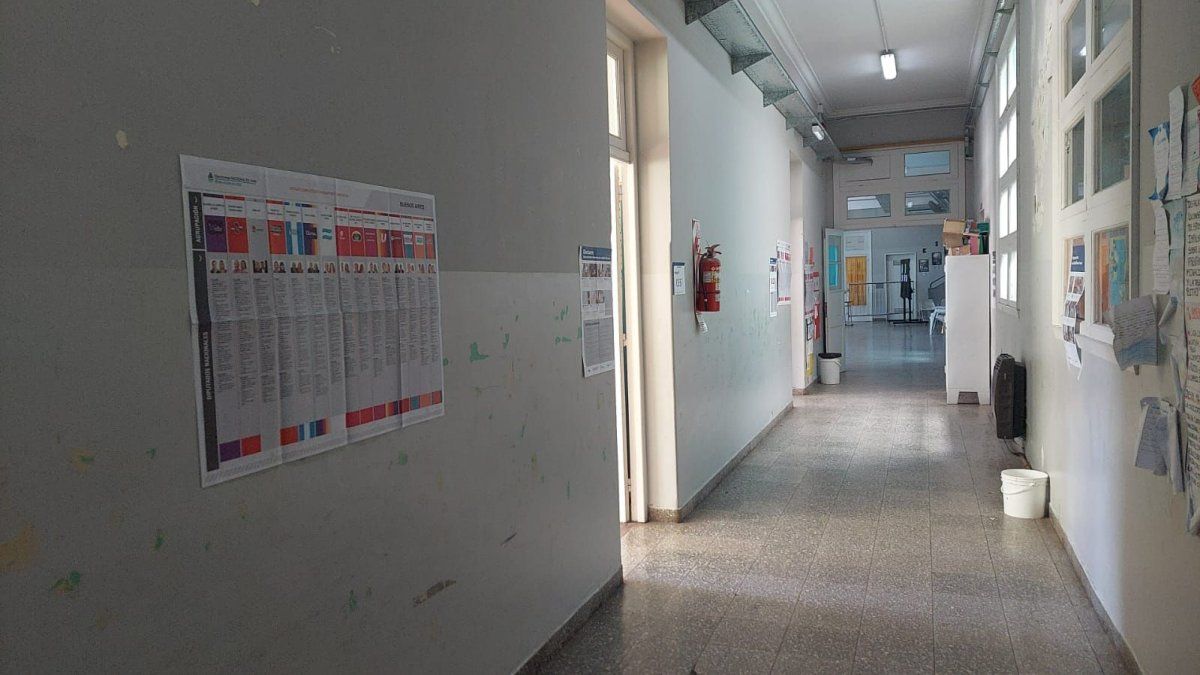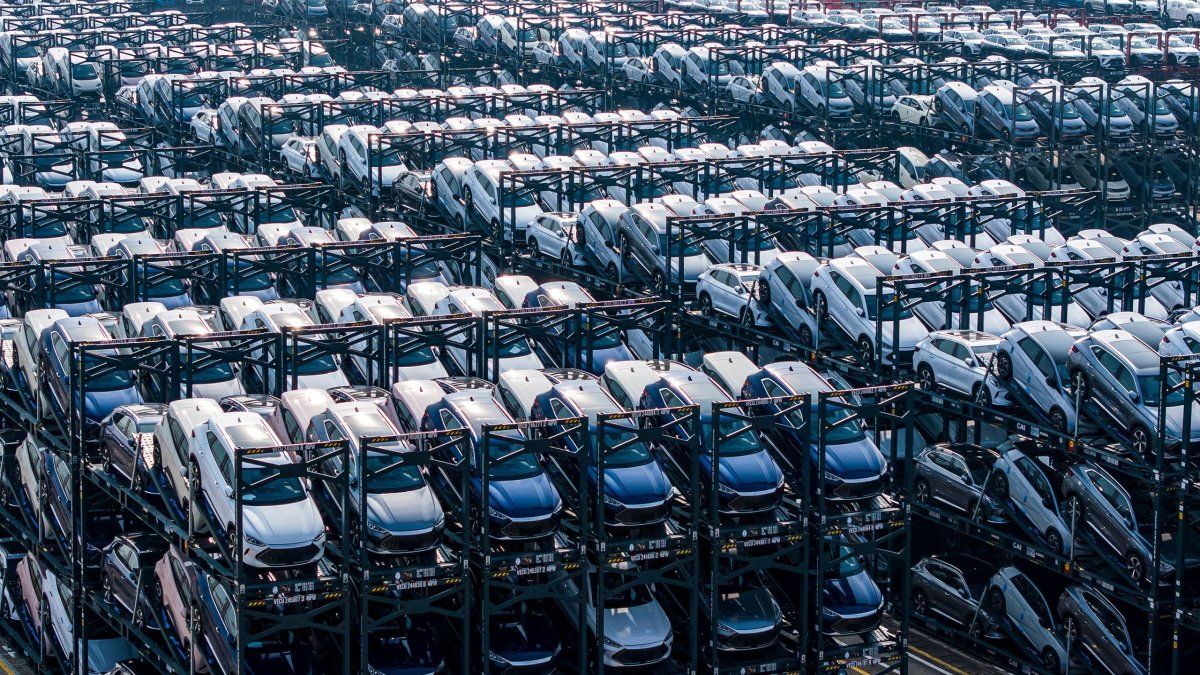The government presented within the draft law of Accountability modifications in the Diesel Trustwith which the bus ticket is currently subsidized, with the aim of promoting the incorporation of electric buses into public transport in Uruguay, through the creation of a “Trust for Sustainable Mobility”.
The idea behind the initiative is that the current subsidy for diesel consumption is also used for companies buy electric buses to be incorporated into their automotive fleets; something that, to this day, is less profitable than fossil fuel vehicles.
The project is part of the strategy of the government of continue deepening the sustainable energy matrix and the decarbonization of the economyin what is considered the second transformation towards renewable energies in the country, focused mainly on mobility.
Why does the government target the diesel subsidy?
As explained by the economist specialized in mobility, Gonzalo Marquez, The Diesel Trust was created in October 2006 to lower the price of the ticket throughout the country through a subsidy for this fuel —with the objective of reducing the fixed costs of the companies and, thus, transferring that reduction to the ticket price.
This initiative was effective and the instrument fulfilled its objective. “However, in recent years it has become clear that it has design problems since by lowering the price of diesel for companies, it ended up transforming into a barrier that prevents the incorporation of efficient technology: electric buses“Marquez said. Even when this type of vehicle not only has a lower environmental, energy and sound impact; but when, also, they present lower economic cost in the life cycle of the bus —which is about 16 years old—: 1.1 million dollars against 0.8 million dollars.
The obstacle is that the diesel subsidy absorbs 0.5 million dollars of these costs, so for the transport company the “traditional” bus ends up being cheaper.
“The diesel subsidy prevents prices from doing their job and thus, the calculation of economic efficiency is distortedinducing the acquisition by companies of less efficient technology (diesel bus) and profitable from a private and public point of view”, considered Márquez, in this regard.
For this reason, enabling said subsidy to also turn to the incorporation of electric buses balances the cost-benefit balance for transport companies, overcoming the “current barrier”.
embed
After several years of discussion, the diesel oil trust is being modified.
To this end, the government has included in the Accountability Law the creation of a “Sustainable Mobility Trust”, which will enable the introduction of electric buses.I open thread: pic.twitter.com/t4Wm4IkMhz
— Gonzalo Marquez (@GonzaMarquez_uy) July 5, 2023
In that sense, the articles 428, 429 and 420 of the Bill of Accountability establish that the new name of the Diesel Trust will be “Trust for Sustainable Mobility” and the resources allocated to it will be for finance programs “that enable collective land transport of passengers, in a sustainable manner and at affordable prices”.
This will be “a new framework to redefine current rules and enable the electrification of the fleet, using the same resources available to subsidize diesel,” said the economist. Likewise, the resources that are currently allocated to the ticket administration trust will be assigned to the new mechanism.
The trust will be managed by a professional trustee and the ultimate beneficiary will be the Ministry of Economy and Finance (MEF). The trustees will be the MEF, ancap and the Ministry of Transport and Public Works (MTOP).
The proposed change also implies that the form of payment of the subsidy to companies be modified, however, those conditions have not yet been detailed. What was defined was that the modifications will be implemented gradually.
Doctor in Economics of Natural Resources and advisor to the MEF in environmental economics, Marcelo Caffera He called the proposal “excellent news” given that “fossil fuel subsidies often block the transition to low-carbon mobility.”
In this sense, the economist indicated that “surprisingly, at least in some countries”, the subsidies “are higher than those necessary to keep the price of tickets constant with electric buses”.
embed
Fossil fuels subsidies frequently lock the transition to low carbon mobility. Surprisingly, at least in some countries, they are higher than the ones needed to maintain the price of tickets constant with electric buses.
— Marcelo Caffera (@MarceloCaffera) July 5, 2023
Source: Ambito




